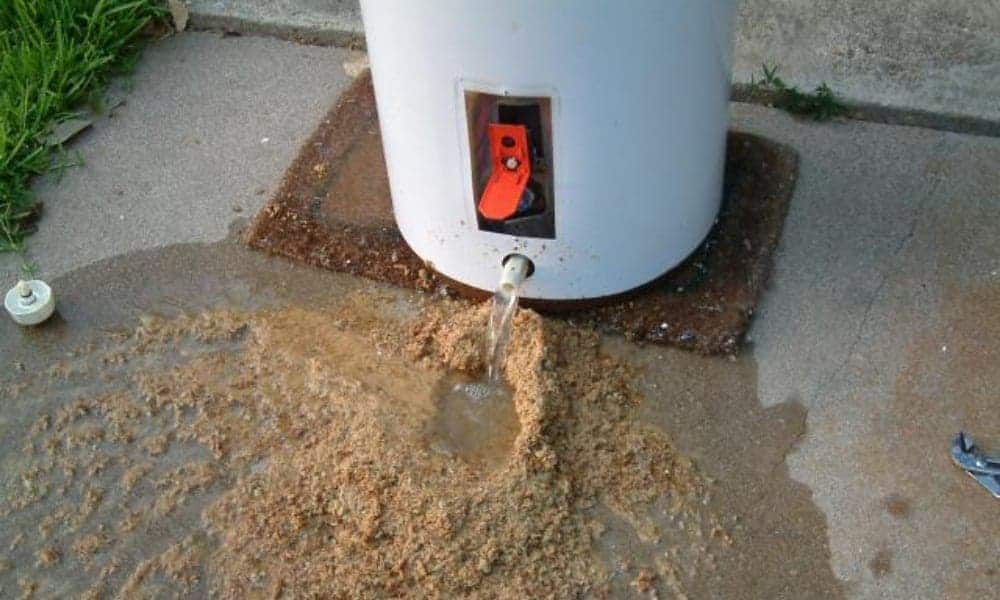Winterizing your water heater is an essential task to protect your home from costly repairs and prevent freezing damage. As temperatures drop, the risk of water heaters freezing increases, especially if they are located in unheated areas like basements, attics, or crawlspaces.
A frozen water heater can lead to broken pipes, expensive repairs, and prolonged downtime without hot water. By taking a few simple precautions, you can avoid these problems and ensure your water heater continues to function efficiently throughout the winter months.
Why Winterizing Your Water Heater is Important?
Water heaters are essential for providing hot water in your home for daily activities like showering, cooking, and washing dishes. During the winter, especially in colder climates, the risk of freezing pipes becomes more significant. When water in the pipes connected to your water heater freezes, it can block the flow of water, damage the heater itself, or even cause bursts that lead to flooding.
To protect your home from potential damage in Massachusetts, winterize water heater services from companies like Milltown Plumbing can help ensure your system is properly prepared for the cold, preventing costly repairs and water damage. Taking proactive steps now can save you from the hassle and expense of emergency repairs, keeping your water heater running efficiently throughout the winter season.
What are the Steps to Winterize Your Water Heater?
Winterizing your water heater can also help maintain its efficiency, save on energy bills, and extend its lifespan. A water heater that is not properly insulated or maintained can overwork itself to keep up with demand, leading to higher energy consumption. These are the following steps for more information:
Check the Temperature Setting
Before taking more extensive measures to protect your water heater, start with adjusting the temperature setting. Set your water heater thermostat to 120°F (49°C). This not only helps save energy but also ensures that the heater isn’t overworking itself during colder months. Lowering the temperature can reduce the risk of overheating the system, which can stress the unit, especially if it has to work harder in freezing temperatures.
Insulate Exposed Pipes
The pipes connected to your water heater, especially those that are exposed to the cold, are susceptible to freezing during the winter months. Insulating these pipes can be an easy and effective way to prevent freezing.
Insulate the Water Heater
Insulating your water heater helps maintain internal temperature, reducing energy use and preventing heat loss. You can use a water heater insulation blanket, typically made of fiberglass or foam. Wrap it around the tank, leaving space for ventilation at the top and bottom to protect it from extreme temperature fluctuations.
Drain the Water Heater
If leaving your home for an extended period, drain the water heater to prevent freezing damage. Turn off the power, shut the water supply, drain the tank, and leave the gate open for airflow. According to the Insurance Institute for Business & Home Safety (IBHS), water damage from frozen pipes can lead to repair costs averaging more than $5,000, making preventive measures like winterizing your water heater essential for homeowners in colder climates.
Protect the Pressure Relief Valve
The pressure relief valve is vital for safety, releasing excess pressure if the tank overheats or the water pressure rises. To prevent freezing, ensure the valve is insulated or wrapped with heat tape if exposed to cold. Regularly check its functionality to ensure it operates correctly when needed.
Seal Gaps and Air Leaks
Cold air can enter through gaps around your water heater, especially in unheated areas like basements or garages. Inspect the area for leaks and seal them with foam or caulk to maintain a consistent temperature. Adding weather stripping around nearby doors or windows can also help prevent cold air from entering.
Consistent Temperature
Maintain a consistent temperature throughout your home, particularly in areas housing the water heater and pipes. Use a space heater or set the thermostat to at least 55°F (13°C) to prevent freezing. This is compulsory for older heaters or cold-prone areas and helps prevent frozen pipes in vacation homes or cabins.
Check for Leaks or Cracks
Before the coldest months hit, it's important to check your water heater for any existing leaks or cracks. Even minor issues can worsen in cold temperatures, potentially leading to more significant damage. Look for signs of leaks around the tank, regulators, and pipes, and take action to repair them immediately.
Consider a Freeze Protection System
For added peace of mind, you can invest in a freeze protection system for your water heater. These systems are designed to monitor the temperature around the water heater and automatically activate if the temperature drops too low, providing an extra layer of protection against freezing.

FAQs
Why is It Important to Winterize My Water Heater?
Winterizing your water heater prevents freezing damage, helps maintain efficiency, and avoids costly repairs by ensuring the system functions properly in cold temperatures.
How Can I Prevent My Water Heater Pipes From Freezing?
Insulate exposed pipes using foam insulation or heat tape, and seal any gaps around the area to maintain a consistent temperature and prevent cold air from entering.
Conclusion
Winterizing your water heater is an essential step in protecting your home from potential damage caused by freezing temperatures. By taking simple, proactive measures such as insulating the tank and pipes, adjusting the thermostat, and maintaining the water heater, you can prevent freezing and keep your water heater running efficiently throughout the winter months.
Regular maintenance and inspections can also help avoid costly repairs and extend the lifespan of your water heater.

